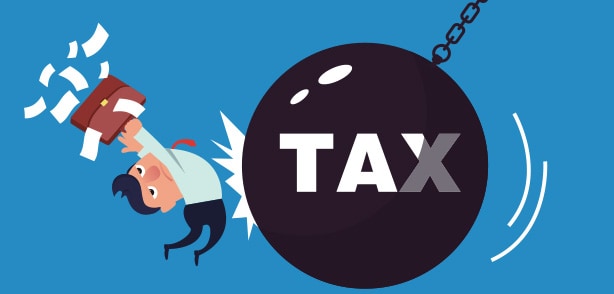What You Need to Know about Tax Liens and Small Business Loans in 2025

Mike opened his health-food restaurant 25 years ago. He planned to pay off his 30-year mortgage on the building early, and he did. However for the last few years, Mike's been unable to get out from under the pandemic's setbacks and some personal financial issues. So he fell behind on taxes, ignoring his accountant's pleas to file his taxes and finance the amount due.
Now, the IRS placed a tax lien on the restaurant, laying claim to the building and all of its contents. Mike has ten days to pay, or else the lien goes into effect and the IRS will seize his assets as part of a levy action.
So much for Mike's decades of hard work. So much for surviving, let alone expanding. To avoid a similar fate, here's what you need know about the ugly business of tax liens.
A tax lean will impact your business plans.
A lien enforces the government's right to get paid before your other creditors; The IRS gets paid first; the others wait in line for whatever's left. There go all of your longstanding business relationships — and your credit profile when applying for working capital.
One bright spot here is that until 2017, a tax lien would appear as delinquency on your business credit report. Then, all three credit bureaus — Experian Equifax, and TransUnion — removed tax-lien data. But a tax lien remains a matter of public record, since it is a legal claim. What's more, if a tax lien lays claim to real property or a bank account, your credit report will reflect this, though your score remains unaffected.
These conditions considered, you can understand why potential lenders don't like tax liens. After all, if you've been late paying the federal or state government, would they lose their money, too? And if you do manage to get a business loan while you have a lien, you'll probably pay high interest rates. This can only further impede your ability to pay the government or your new creditor.
Two pathways to getting a business loan with a standing lien.
Knowing the impediments of a lien, the IRS offers two potential options:
Subordination removes the government's right to be the first creditor paid if you default on your obligations. This removes much of your potential lender's risk. The IRS provides instructions on subordination eligibility and how you can apply for it.
Withdrawal removes the public notice of a Federal Tax Lien, though you're still liable for the balance. Getting a withdrawal is one of the best-case scenarios for businesses in tax debt.
Can you avoid a tax lien altogether?
Yes! If you can't afford to pay your tax bill on time, work with the IRS to come up with alternatives. After all, it's in its best interests to work out a payment plan with a willing taxpayer.
You can:
Create a monthly installment payment plan that works for your business.
Obtain a temporary delay of collection.
Agree upon an "offer in compromise." If you meet the criteria, you can settle your business tax debt for less than the full amount.
Educate yourself.
If you fail to respond to IRS communications and ignore their legal claims, you could make your financial situation even more complicated. Educate yourself so that you understand the benefits and downsides of each course of action. This will give you the best shot at getting back to business as usual.
Did You Know?
If you owe more than $10,000 and you haven't made an agreement to pay in six years or sooner, the IRS will typically file a tax lien.
Amounts due over $50,000 will almost always trigger a lien — even if you've agree to pay.
Source: H&R Block
Since 2008, Fora Financial has distributed $4 billion to 55,000 businesses. Click here or call (877) 419-3568 for more information on how Fora Financial's working capital solutions can help your business thrive.







